YOUR BROWSER IS OUT-OF-DATE.
We have detected that you are using an outdated browser. Our service may not work properly for you. We recommend upgrading or switching to another browser.
This training was organized in collaboration with the Unite! University Alliance.
International Staff Week – Recap
Joint workshops, panels, and laboratory visits showcased how academic cooperation can shape modern international learning ecosystems. This year’s edition, co-organized with Unite! partners—Politecnico di Torino, UPC Barcelona, TU Darmstadt and Aalto University—combined intensive workshops, discussion panels, and presentations of best practices.
From initial discussions to advanced workshops.
The first panels focused on the foundations of international collaboration in the academic environment. Experts from Wrocław Tech—Dr. Grzegorz Lesiuk, Dr. Michał Stosiak and Anna Iwanowska—discussed best practices in developing high-quality Blended Intensive Programmes (BIP). Later, Davide Papurello from Politecnico di Torino and Veruscka Xavier Filgueira from Aalto University shared insights into designing COIL courses, addressing both opportunities and potential risks.
Wednesday was dedicated to hands-on workshop activities.
Prof. Łukasz Sadowski led a session on the interdisciplinary Resilient Built Environment programme, while Dr. Agnieszka Tubis presented the U-Team project, showing how innovation supports the development of teaching competences and internationalization. The day concluded with visits to laboratories involved in international projects.
Thursday’s programme focused on designing and running joint study programmes.
Dr. Andreas Haun from TU Darmstadt and Ewa Mroczek from Wrocław Tech presented findings from the MACInAC project on creating effective double-degree programmes. Dr. Justyna Herlender shared practical experiences related to developing international curricula. The day also included a session by Dr. Elżbieta Zienkiewicz devoted to micro-credentials—one of the key tools in future-oriented, modular education.
Exchange of experiences and planning next steps.
On Friday, participants joined a closing panel summarizing long-term international collaboration and strategies for strengthening partnership networks. They also discussed the lessons learned and directions for future development.
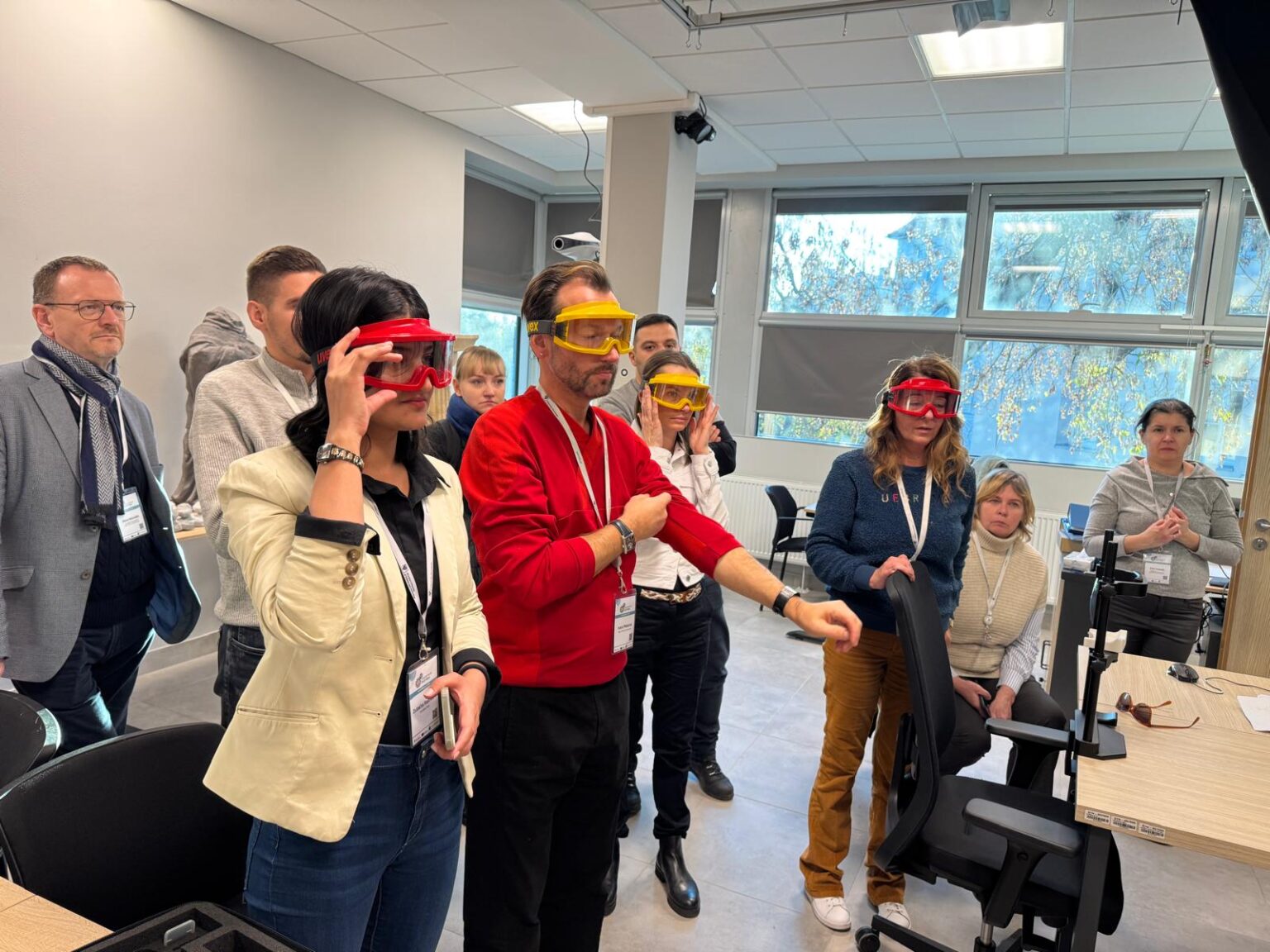
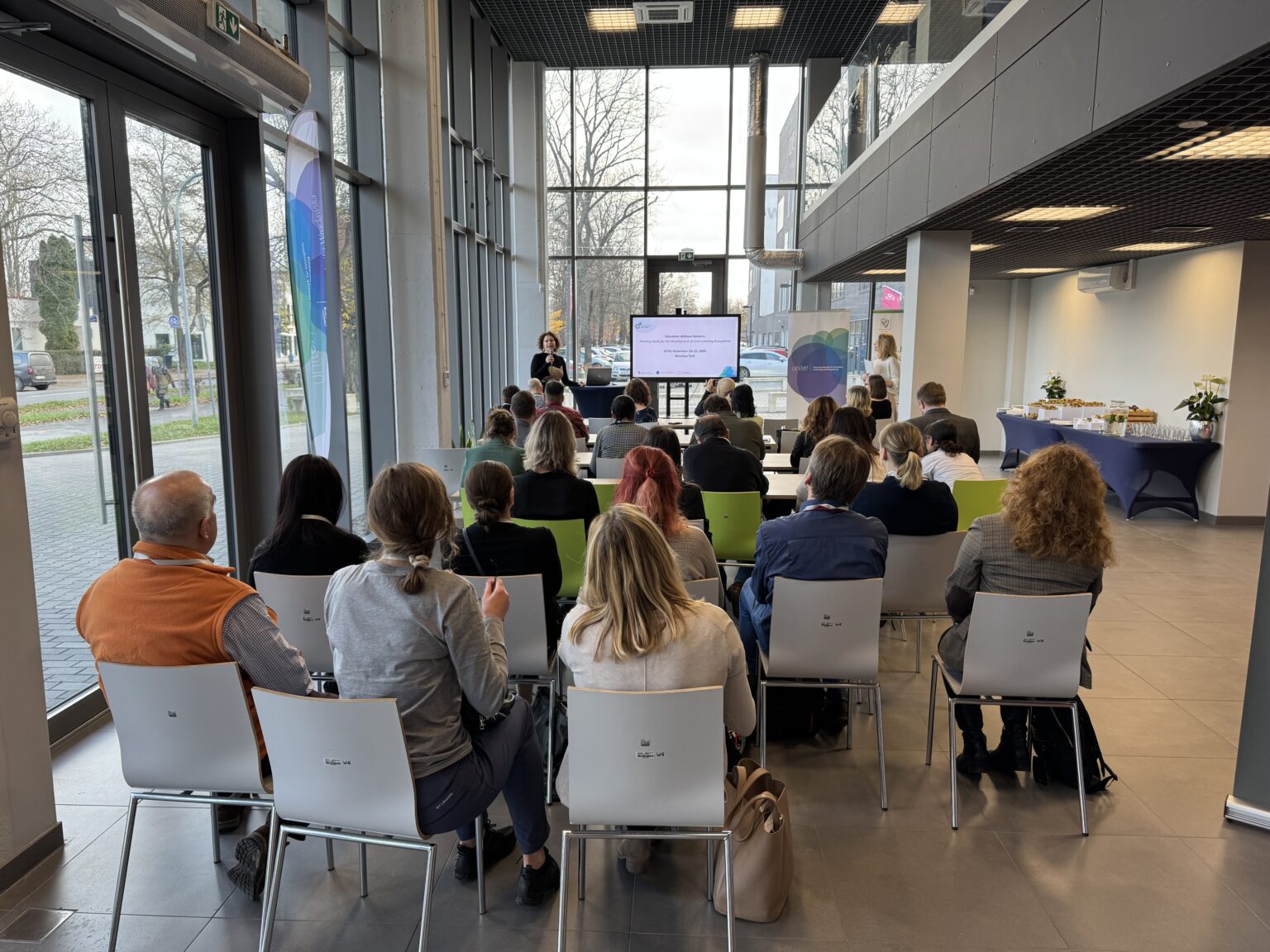
Venue: Wrocław Tech, building L-2, 13 Na Grobli Street, 50-421 Wrocław
Tuesday, November 18 — Arrival & Welcome Day 1
10:00 – 11:00 | Participant Registration & Welcome Coffee
11:00 – 11:15 | Opening
11:15 – 11:45 | Participant Introduction
11:45 – 12:15 | Polish crash course
12:15 – 12:30 | Coffee break
12:30 – 14:00 | Panel: How to Build Effective BIPs – Sharing best practices
Wrocław Tech: PhD, DSc, Assoc. Prof. Grzegorz Lesiuk, PhD, DSc, Assoc. Prof. Michał Stosiak, M.A. Anna Iwanowska (1)
14:00 – 15:00 | Lunch
15:00 – 16:30 | Panel: How to build COILs- Practical Tips and Pitfalls
Politecnico di Torino: PhD, DSc, Assoc. Prof. Davide Papurello, Aalto University: MSSc. Veruscka Xavier Filgueira (2)
Wednesday, November 19 — Thematic Workshops Day 2
09:00 – 11:00 | Workshop: Interdisciplinary Master Programme in Resilient Built Environment
Wrocław Tech: Prof. Łukasz Sadowski (3)
11:00 – 11:15 | Coffee Break
11:15 – 13:30 | Workshop: The U-Team Project – Teaching Competences & Internationalisation through Innovation
Wrocław Tech: PhD, DSc, Assoc. Prof. Agnieszka Tubis (4)
13:30 – 14:15 | Lunch
14:15 – 15:30 | Campus Tour & Lab Visit: Explore Selected Laboratories Engaged in International Cooperation
19:00 | Networking Dinner at a Local Restaurant
Thursday, November 20 — Thematic Workshops Day 3
09:00 – 10:30 | Session : Making Double Degrees Work & Conclusions from the MACInAC project
TU Darmstadt: PhD Eng. Andreas Haun, Wrocław Tech: M.A Ewa Mroczek (5)
10:30 – 10:45 | Coffee Break
10:45 – 11:45 | Session: Designing International Curricula for Sustainable Double Degree Education:
A Practical Case from Wrocław Tech
Wrocław Tech: PhD Eng. Justyna Herlender (6)
12:00 – 13:30 | Session: Micro-credentials – From Idea to Implementation
Wrocław Tech: PhD, DSc, Assoc. Prof. Elżbieta Zienkiewicz (7)
13:30 – 14:30 | Lunch
Friday, November 21 — Final Outcomes & Cultural Activity Day 4
09:00 – 10:30 | Closing Panel: Long-term International Collaboration that Works: Managing, Growing, and Sustaining Partner Networks, Wrocław Tech: PhD, DSc, Assoc. Prof. Elżbieta Zienkiewicz (7)
10:30 – 11:30 | Open Discussion: Lessons Learned and Future Plans
11:30 – 12:00 | Distribution of certificates
12:00 – 13:00 | Farewell lunch
13:00 – 15:00 | Cultural experience
Panel: How to Build Effective BIPs – Sharing best practices
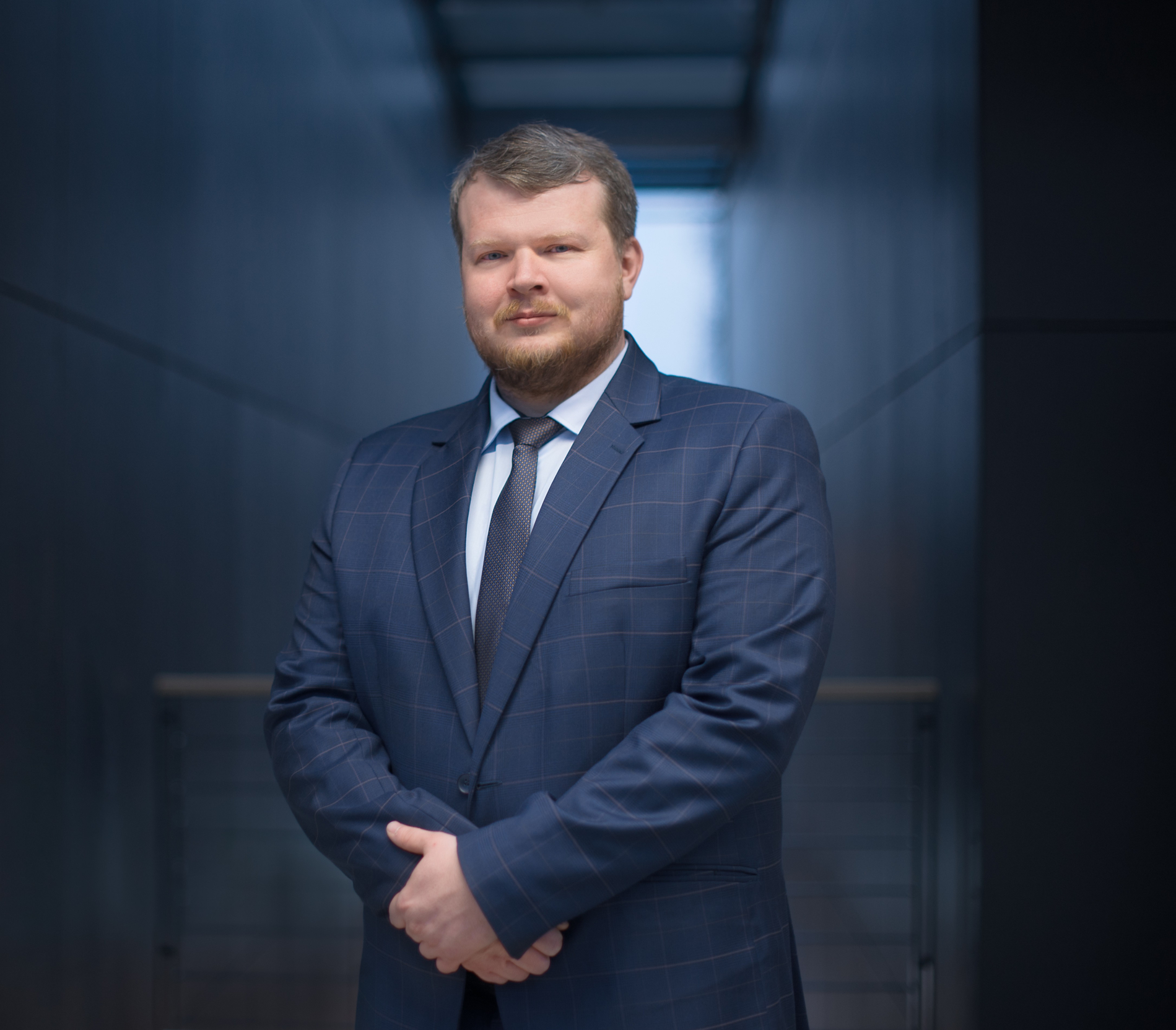 Prof. Grzegorz Lesiuk specializes in mechanics, fracture mechanics, and fatigue of materials and structures, focusing on new materials and modelling their durability under cyclic and static loads. He is the author of over 150 scientific papers, more than 100 conference papers, and holds 2 patents. Currently, he serves as President of the Polish Fracture Mechanics Group and the Polish Society of Theoretical and Applied Mechanics (Wrocław branch), and is a member of the Polish Academy of Sciences (Wrocław branch) and ESIS. He is Erasmus + Faculty of Mechanical Engineering Coordinator. He has organised numerous BIP-type summer schools and co-developed innovative Master’s and Doctoral programmes for outstanding students.
Prof. Grzegorz Lesiuk specializes in mechanics, fracture mechanics, and fatigue of materials and structures, focusing on new materials and modelling their durability under cyclic and static loads. He is the author of over 150 scientific papers, more than 100 conference papers, and holds 2 patents. Currently, he serves as President of the Polish Fracture Mechanics Group and the Polish Society of Theoretical and Applied Mechanics (Wrocław branch), and is a member of the Polish Academy of Sciences (Wrocław branch) and ESIS. He is Erasmus + Faculty of Mechanical Engineering Coordinator. He has organised numerous BIP-type summer schools and co-developed innovative Master’s and Doctoral programmes for outstanding students.
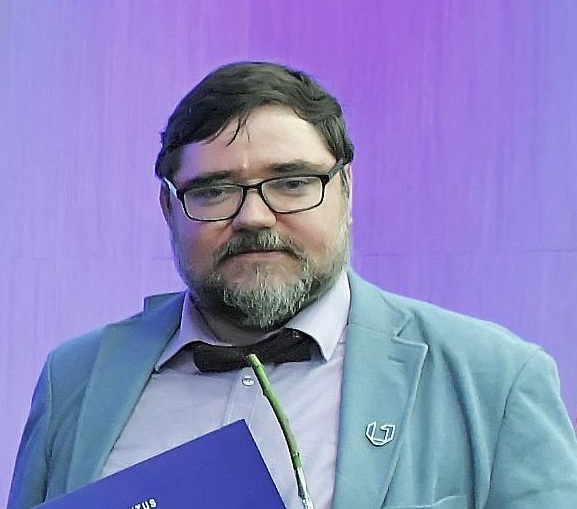
Prof. Michał Stosiak earned his M.Sc. (2001), Ph.D. (2005), and D.Sc. (2015) degrees in Mechanical Engineering from Wrocław University of Science and Technology. Since 2017, he has been an Associate Professor at the Faculty of Mechanical Engineering, serving as Deputy Head of the Department of Technical Systems Operation and Maintenance and formerly as Head of the Department of Hydraulic Drives and Automatics.
He is the author of nearly 300 scientific publications, 14 patents, and 6 patent applications. His research focuses on hydraulics, vibrations, pressure pulsations and damping, noise reduction, hydrodynamics, frequency and vibration analysis, and the application of composite materials.
About the workshop:
During the workshop, issues related to the organisation of Blended Intensive Programmes (BIP) will be discussed, all formal aspects will be presented, but above all, case
studies will be presented showing different BIP programme structures with different objectives. Participants in the discussion will share their experiences and good practices
within the framework of BIP. The workshop leaders will give a presentation on BIP’s and similar programmes in the first part, followed by a panel discussion in the second part.
2. Panel: How to build COILs- Practical Tips and Pitfalls
 Veruscka Xavier Filgueira, MSSc, is a Digital Learning Specialist at Aalto University's School of Science. She supports technology-enhanced learning, helping teachers integrate digital tools into their courses. As an Aalto representative in the Unite! network, she has contributed to building support for international collaborative courses, with a focus on the network’s learning management platform, Metacampus.
Veruscka Xavier Filgueira, MSSc, is a Digital Learning Specialist at Aalto University's School of Science. She supports technology-enhanced learning, helping teachers integrate digital tools into their courses. As an Aalto representative in the Unite! network, she has contributed to building support for international collaborative courses, with a focus on the network’s learning management platform, Metacampus.
Veruscka will discuss her experience as the institutional coordinator for Aalto University (Finland) in the Open Networked Learning (ONL) course. ONL is a fully online course developed and implemented mainly by Swedish universities, in cooperation with partners and contributors around the world. At Aalto, ONL has been offered as an elective component of pedagogical training, targeted at university teachers and higher education specialists. As a COIL and pedagogical course, ONL is a good example of how to combine problem-based learning and collaborative learning in a very diverse and often multidisciplinary group of participants.
 Dr. Davide Papurello received his M.Sc. and Ph.D. in Energetics from Politecnico di Torino, where he is currently an Associate Professor at the Energy Center. He has co-authored over 70 peer-reviewed papers (H-index 34, >2200 citations) and collaborates with institutions such as VTT, IEN, TUM, EPFL, FEM, and SOLIDPOWER.
Dr. Davide Papurello received his M.Sc. and Ph.D. in Energetics from Politecnico di Torino, where he is currently an Associate Professor at the Energy Center. He has co-authored over 70 peer-reviewed papers (H-index 34, >2200 citations) and collaborates with institutions such as VTT, IEN, TUM, EPFL, FEM, and SOLIDPOWER.
His research focuses on high-temperature fuel cells, hydrogen and biogas technologies, energy storage, and safety of emerging energy systems. He is also active in Unite! Alliance initiatives, contributing to joint courses and summer schools with TUG, TUD, Wrocław Tech, and UPC.
In recent years, he has coordinated and participated in several Collaborative Online International Learning (COIL) projects within the UNITE! Alliance, integrating virtual education and international mobility. Among these, the HSMA - Hydrogen and Safety for Mobile Applications course, which combines online and face-to-face components, represents an effective model of European academic cooperation. Experiences from summer schools and joint courses show how transnational collaboration fosters technical and intercultural competences. Our aim is to consolidate these practices for an authentic "Education Without Borders".
3. Workshop: Interdisciplinary Master Programme in Resilient Built Environment
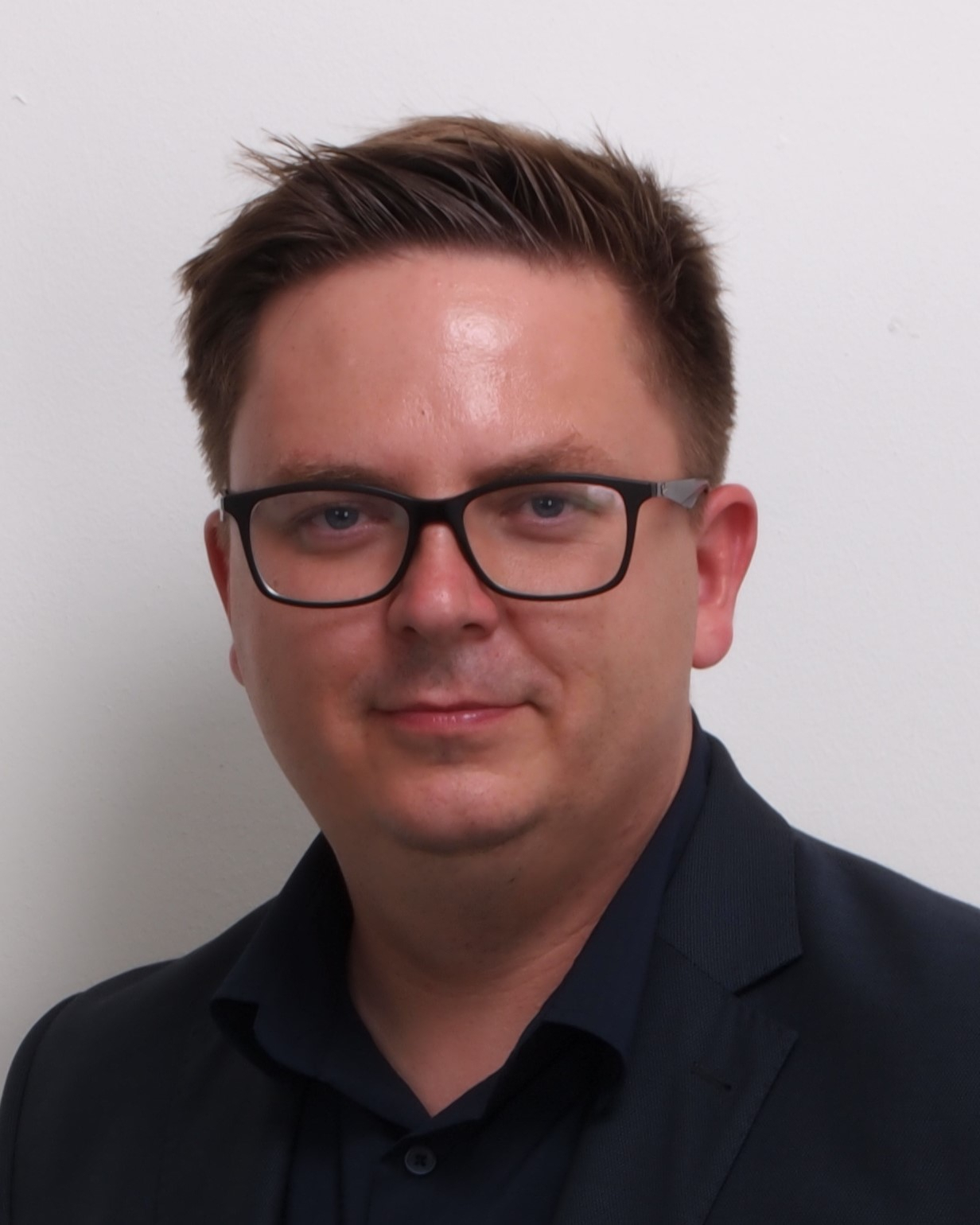 Professor Łukasz Sadowski is a civil engineer combining research in building materials, non-destructive testing, construction processes, and artificial intelligence. He is Head of the Department of Building Materials and Processes Engineering and Vice-Dean for Research at the Faculty of Civil Engineering, Wrocław University of Science and Technology, as well as Director of the Urban Innovation Centre. Author of over 300 publications and co-author of several patents, he has gained experience in leading research institutions across Europe and Australia. His work emphasizes that engineering blends imagination, curiosity, and responsibility for the world we build.
Professor Łukasz Sadowski is a civil engineer combining research in building materials, non-destructive testing, construction processes, and artificial intelligence. He is Head of the Department of Building Materials and Processes Engineering and Vice-Dean for Research at the Faculty of Civil Engineering, Wrocław University of Science and Technology, as well as Director of the Urban Innovation Centre. Author of over 300 publications and co-author of several patents, he has gained experience in leading research institutions across Europe and Australia. His work emphasizes that engineering blends imagination, curiosity, and responsibility for the world we build.
About the session:
This interactive workshop will focus on designing an interdisciplinary and international Master’s programme addressing the challenges of a Resilient Built Environment. Participants will work collaboratively to outline a “Research & Innovation Track” integrating sustainability, digital transformation, and engineering resilience. Through group discussions and design-thinking exercises, we will explore how to combine education, research, and innovation in a joint learning ecosystem — preparing graduates for the built environment of the future.
4. Workshop: The U-Team Project – Teaching Competences & Internationalisation through Innovation
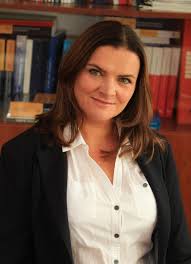 Prof. Agnieszka Tubis, Professor at Wrocław University of Science and Technology, specializes in logistics and transport system engineering. She holds a PhD in Management from Wrocław University of Economics and a postdoctoral degree in Transport Engineering from Warsaw University of Technology. Her research focuses on logistics system design, risk management in cyber-physical environments, and resilient logistics networks.
Prof. Agnieszka Tubis, Professor at Wrocław University of Science and Technology, specializes in logistics and transport system engineering. She holds a PhD in Management from Wrocław University of Economics and a postdoctoral degree in Transport Engineering from Warsaw University of Technology. Her research focuses on logistics system design, risk management in cyber-physical environments, and resilient logistics networks.
She has led or participated in 18 R&D projects, completed seven industry internships, and authored around 170 publications. Prof. Tubis actively collaborates with industry and public institutions and serves on boards of organizations such as PTL, PNTTE, ESReDA, and EFNMS. At her university, she coordinates the Electronic Document Management System and supports the European Charter for Researchers initiative.
About the workshop
The workshop, hosted by Wrocław Tech, will present a NAWA-funded project as an example of international collaboration within the Unite! alliance. The project includes summer schools, doctoral workshops, seminars, trainings, and study visits.
Participants will learn about the project’s goals, structure, and challenges in international mobility, and work together to develop recommendations for managing complex academic projects. The event will also foster discussion on best practices in recruitment, intercultural communication, and engaging diverse participants.
5. Session : Making Double Degrees Work & Conclusions from the MACInAC project
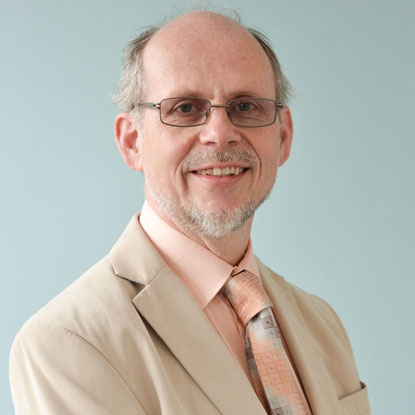
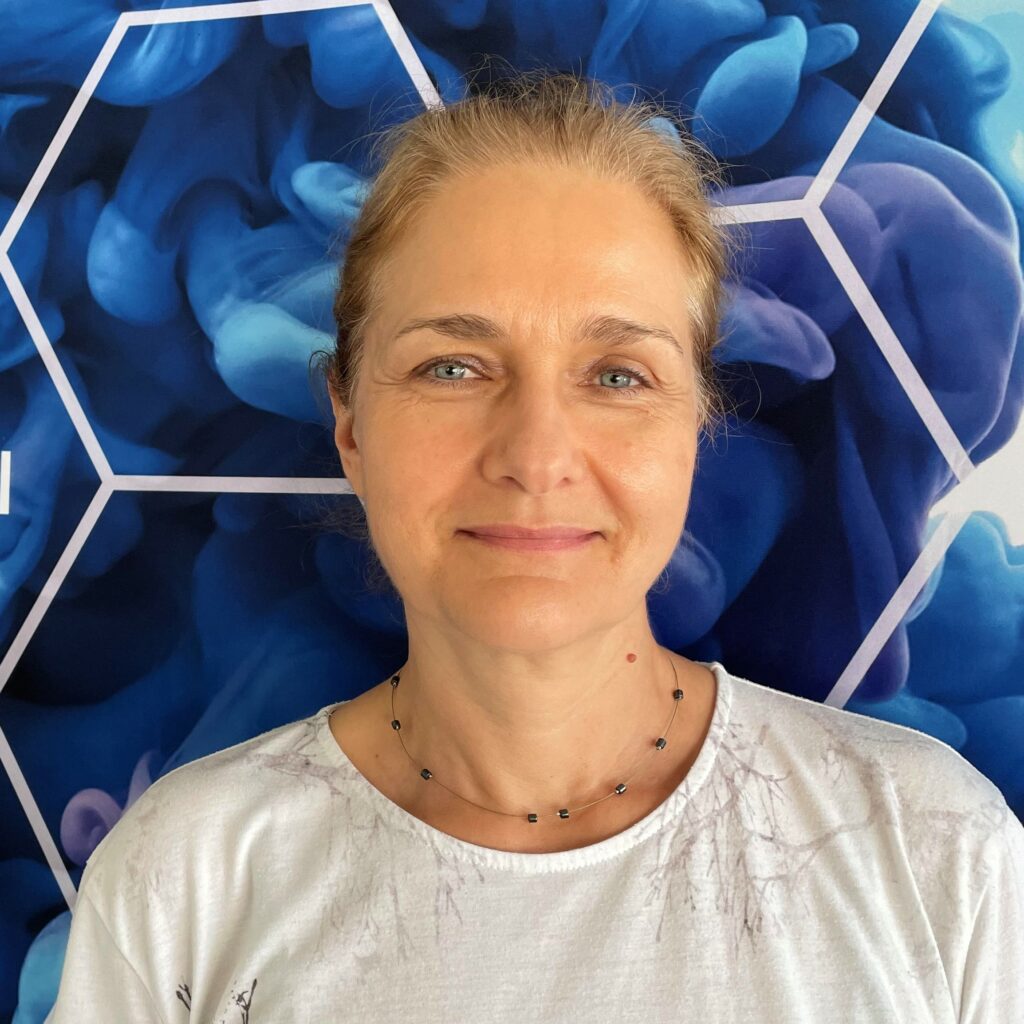
Dr.-Ing. Andreas Haun studied Electrical Power Engineering at Technische Hochschule Darmstadt (renamed to: Technische Universität Darmstadt in 1997). He did his PhD with Prof. Dr.-Ing. Egon Andresen as supervisor, researching PWM inverter control methods with aspect to the performance of 3phase machines. After working as project engineer at machine factory Goebel, Darmstadt, in the area of large printing machines, in 1995 he started working in the dean’s office of the faculty Electrical Engineering and Information Technology at TU Darmstadt as leader of the faculties office for student’s affairs and developed the administrative processes, collaborated in many committees for development of curricula, exams rules, digitalization of the administration, and many other tasks. For 25 years he was responsible for student consulting, was CEO of several exams’ commissions, developed and implemented several Double Degree Programs with many Partners across Europe and oversea. He is member of the “MACInAC team”.
Ewa Mroczek is the Chief Specialist at the Center of National and International Relations at Wrocław University of Science and Technology. Professionally associated with the university since 2010, she has been actively involved in developing study programmes offered jointly with partner universities—particularly those within the T.I.M.E. and Unite! alliances.
She serves as the Coordinator of the T.I.M.E. Double Degree Programme and is involved in the Joint Programmes Experts Group of Community 4 of the Unite!
About workshop:
The workshop aims to familiarise participants with the process of establishing cooperation and implementing double degree agreements within the MACInAC project. The project focuses on developing international collaboration, identifying curriculum compatibility of selected master’s programmes, and creating a basis for future joint or double degree initiatives.In partnership with TU Darmstadt and UPC Barcelona, the consortium analyses three master’s programmes, evaluates collaboration practices, and identifies challenges, best practices, legal frameworks, and barriers to implementing similar programmes.
6. Session: Designing International Curricula for Sustainable Double Degree Education: A Practical Case from Wrocław Tech
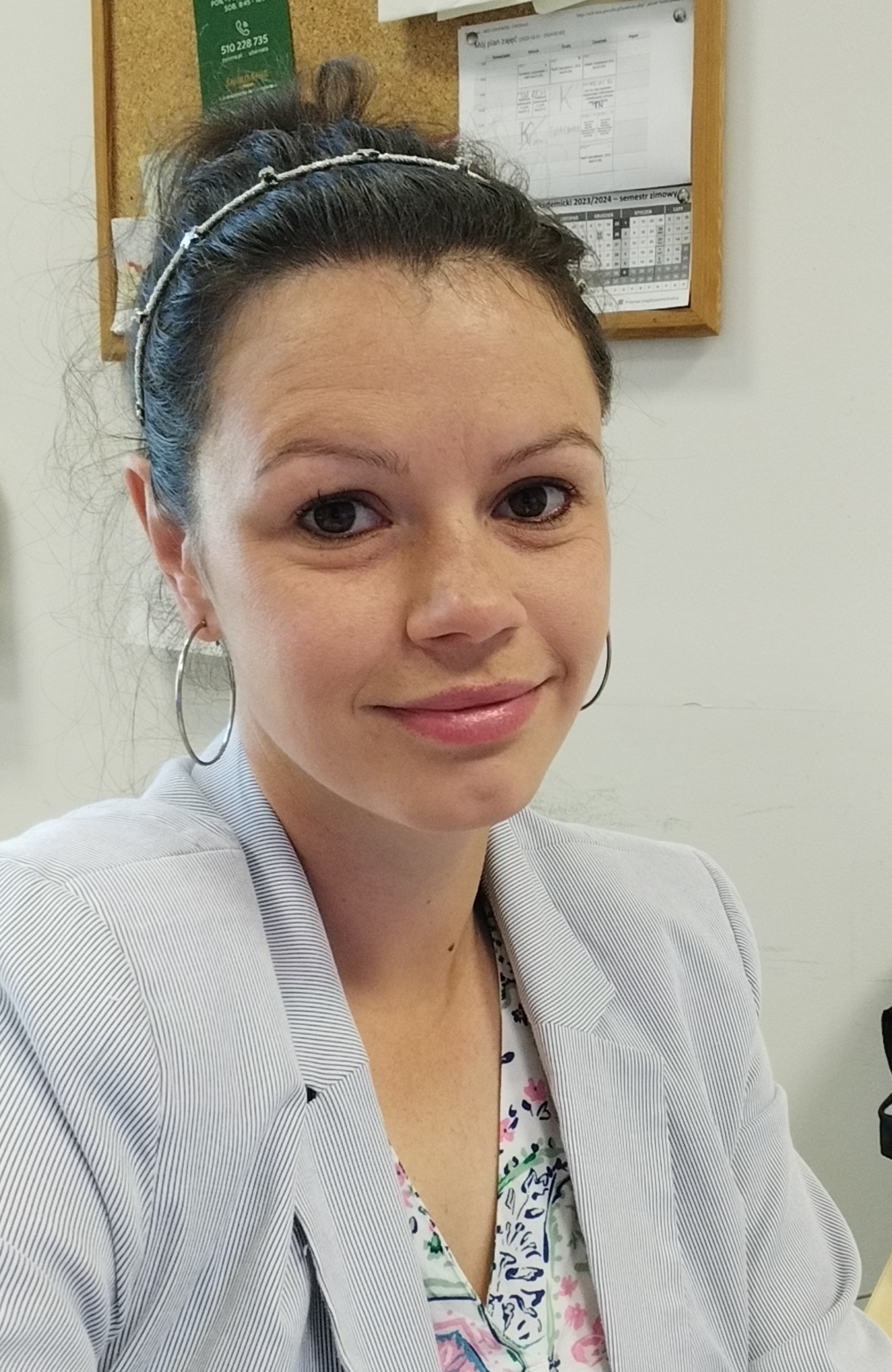 Justyna Herlender, assistant professor, received PhD degree from Wroclaw Tech in 2020, with research interest in electrical engineering, mainly in power system protection methods. Since 2017, International Programmes Coordinator at the Faculty of Electrical Engineering responsible for the realization of Double Degree programs.
Justyna Herlender, assistant professor, received PhD degree from Wroclaw Tech in 2020, with research interest in electrical engineering, mainly in power system protection methods. Since 2017, International Programmes Coordinator at the Faculty of Electrical Engineering responsible for the realization of Double Degree programs.
The presentation provides an overview of the inter-university cooperation within the double degree program in the field of Electrical Engineering. It is a joint initiative between Wrocław Tech and RWTH Aachen. The program is designed for master’s students who wish to gain international academic experience. The presentation highlights the structure, objectives, and benefits of this collaboration.
7. Closing Panel: Long-term International Collaboration That Works: Managing, Growing, and Sustaining Partner Networks
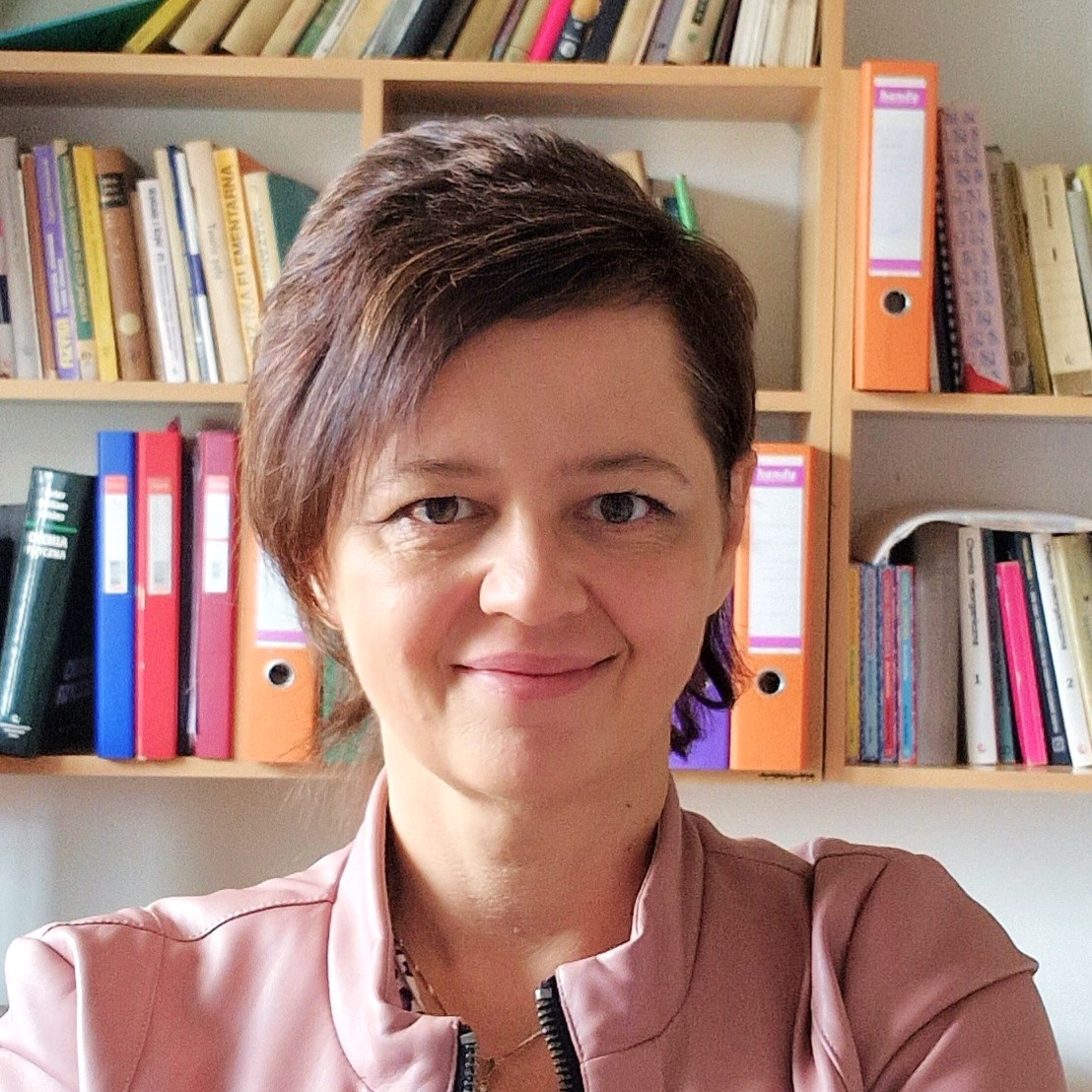 Prof. Elżbieta Zienkiewicz is a professor at the Faculty of Chemistry, Wrocław University of Science and Technology. She coordinates the Chemical Nano‑Engineering program, an international Erasmus Mundus master’s degree, and is the director of the Centre for Teaching Excellence (CDD) at Wrocław Tech. Her research and teaching focus on interdisciplinary education in chemistry, nanotechnology, and materials science, as well as the development of innovative teaching methods, including problem‑based learning and tutoring. She has been recognized for her contributions to higher education with the Bronze Medal for Long Service.
Prof. Elżbieta Zienkiewicz is a professor at the Faculty of Chemistry, Wrocław University of Science and Technology. She coordinates the Chemical Nano‑Engineering program, an international Erasmus Mundus master’s degree, and is the director of the Centre for Teaching Excellence (CDD) at Wrocław Tech. Her research and teaching focus on interdisciplinary education in chemistry, nanotechnology, and materials science, as well as the development of innovative teaching methods, including problem‑based learning and tutoring. She has been recognized for her contributions to higher education with the Bronze Medal for Long Service.